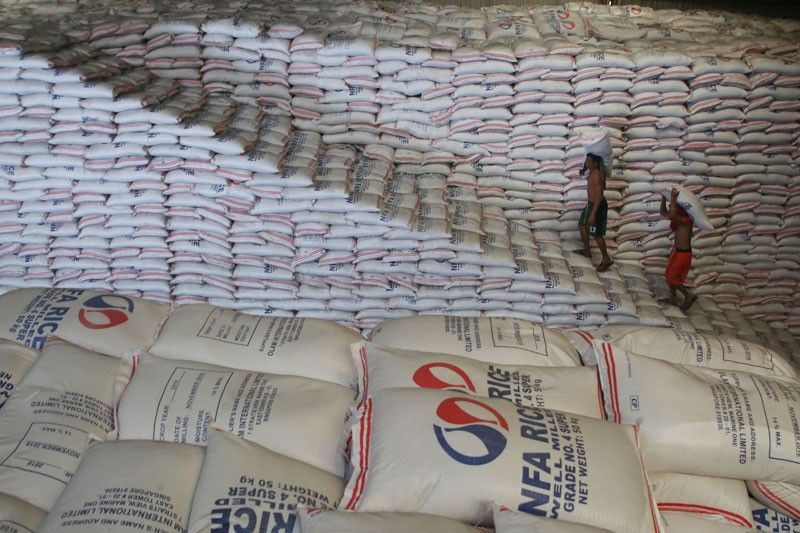BSP charter changes, rice tariff credit positive for Phillippines

MANILA, Philippines — Moody’s Investor Service said the recent signing of two landmark laws crucial in enhancing macroeconomic and financial stability is positive for the credit rating of the Philippines.
Christian de Guzman, vice president and senior credit officer at Moody’s, said the signing of multiple economic reforms into law, including amendments to the charter of the Bangko Sentral ng Pilipinas (BSP) as well as the rice tariffication law, promotes greater macroeconomic stability.
“These measures will enhance macroeconomic and financial stability, a credit positive for the sovereign,” De Guzman said.
Last Feb. 14, President Duterte signed Republic Act 11211 or an act amending RA 7653 otherwise known as The New Central Bank Act and RA 11203 or the Rice Import and Export Liberalization Act set to take effect on March 5.
De Guzman said the amendment to the BSP’s charter expands the regulator’s supervisory oversight over non-bank financial institutions such as money service businesses, credit granting businesses and payment system operators that would enhance financial stability given the linkages between the banking system and these entities.
He added the revised charter allows the BSP to issue its own debt securities, providing another tool to fine tune liquidity management and improve the effectiveness of monetary policy.
“The issuance of its own debt will enhance the BSP’s ability to better calibrate liquidity condition through open market operations, allowing it to rely less on its deposit facilities and reserve requirements, which at 18 percent is one of the highest globally,” he said.
The BSP’s Monetary Board slashed the level of deposits banks are required to keep with the central bank by 200 basis points, releasing close to P200 billion or 1.1 percent of gross domestic product (GDP), as part of the commitment of the late BSP Governor Nestor Espenilla Jr. to bring down the level to single-digit by the end of his term.
Excess liquidity, as reflected in BSP’s overnight deposit and term deposit facilities declined to P120 billion or 0.7 percent of GDP as of end-November from as high as P1 trillion or 7.6 percent of GDP in mid-2016.
“The BSP’s intention to gradually reduce the reserve requirement will further ease liquidity constraints notwithstanding policy rate tightening since May 2018,” De Guzman said.
The BSP raised interest rates by 175 basis points in five straight rate-setting meetings from May to November last year to prevent inflation from spiraling out of control. The consumer price index accelerated to 5.2 percent last year from 2.9 percent in 2017, exceeding the BSP’s two to four percent target, due to elevated oil and food prices as well as weak peso.
The Moody’s executive said, other notable changes include the official removal of money supply and credit levels as a basis to determine monetary policy; the prohibition of any injunction or restraining order on the BSP, except by the Philippines’ two highest courts; an increase in BSP’s capitalization to P200 billion from P50 billion; and the exemption of the bulk of its activities from taxation.
“Over the past decade, the Philippines has been one of the fastest growing economies in Asia Pacific, with accelerating credit growth contributing to a decline in domestic liquidity, which contributed to rising domestic interest rates last year,” he added.
On the other hand, De Guzman said the rice tariffication scheme would help alleviate local supply-demand imbalances by eliminating quantitative restrictions on rice imports.
Last year, he pointed out weather-related supply disruptions led to a decline in the growth of rice production, leading to an uptick in domestic rice prices as rice accounts for nearly 10 percent of the entire consumer price index basket.
“We expect the expected increase in the volume of rice imports will diminish the price volatility of rice, helping to insulate Filipino households’ consumption to adverse agricultural shocks,” De Guzman said.
The BSP estimates the rice tariffication law would reduce inflation by 0.6 percentage point this year and 0.3 to 0.4 percentage point next year.
Moody’s, along with S&P Global Ratings and Fitch Rating, has assigned a notch above minimum investment grade rating for the Philippines.
Investment grade rating leads to lower borrowing costs for the national government and Philippine companies in international markets, allowing higher valuations for their issuances.
- Latest
- Trending





























